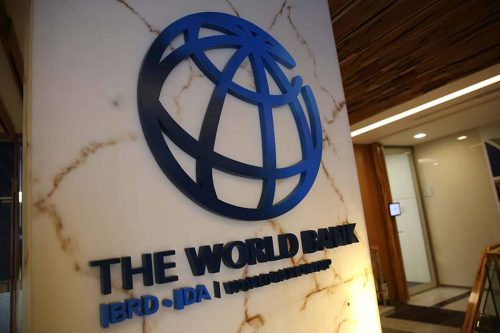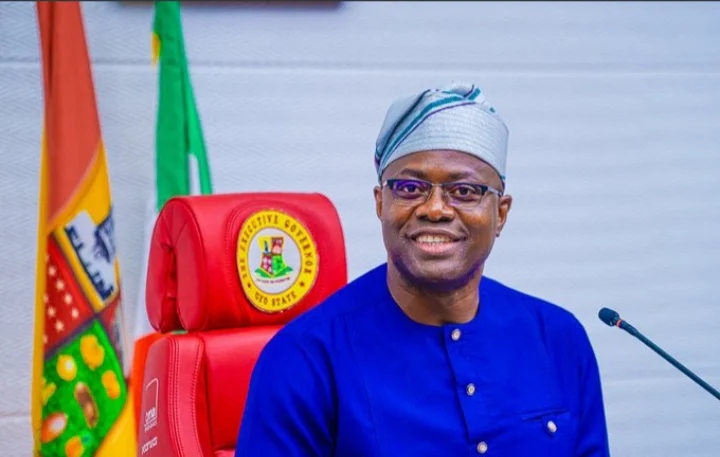The World Bank has stated that Nigeria is among a list of top 10 countries with high debt risk exposure.
It stated this in the financial statement for International Development Association, which was among the World Bank FY21 audited financial statements released on Monday.
The financial statement said, “IDA faces two types of credit risk: country credit risk and counterparty credit risk.
“Country credit risk is the risk of loss due to a country not meeting its contractual obligations, and counterparty credit risk is the risk of loss attributable to a counterparty not honoring its contractual obligations.
“IDA is exposed to commercial as well as noncommercial counterparty credit risk.”
It stated, “As of June 30, 2021, the 10 countries with the highest exposures accounted for 66 percent of IDA’s total exposure.”
Nigeria was rated fifth on the list with $11.7bn IDA debt stock, while India led the list with $22bn IDA debt stock, followed by Bangladesh with $18.1bn IDA debt stock, Pakistan with $16.4bn IDA debt stock, and Vietnam with $14.1bn IDA debt stock.
Other countries on the list in order of appearance included Ethiopia with $11.2bn IDA debt stock, Kenya with $10.2bn IDA debt stock, Tanzania with $8.3bn IDA debt stock, Ghana with $5.6bn IDA debt stock, and Uganda with $4.4bn IDA debt stock.
It added that there was a Single Borrower Limit for IDA, which for FY22, had been set at $45bn (25 per cent of $180.9bn of equity as of June 30, 2021).
It was further discovered that Nigeria’s undisbursed balance with the World Bank is about $8.656bn as at June 30, 2021.
According to the financial statement for the International Bank for Reconstruction and Development, Nigeria has a total of $589m undisbursed balance, consisting of $500m loans approved but not yet signed and $89m signed loan commitment.
The financial statement for IDA disclosed that Nigeria had a total undisbursed balance of $8.07bn, consisting of $1.462bn loans approved but not yet signed and $6.61bn signed loan commitment.
The financial statement for IBRD disclosed that although certain amount of loans has been agreed ‘the loans are not effective and disbursements do not start until the borrowers and/or guarantors take certain actions and furnish documents’.
A total of $1bn loans were agreed between Nigeria and the World bank’s IBRD, of which Nigeria’s outstanding loan is $411m.
For IDA, a total of $19.54bn loans were agreed upon, of which Nigeria’s outstanding loan is $11.47bn.
According to the Debt Management Office, Nigeria owes the World Bank a total of $11.51bn, consisting of $11.10bn IDA loans and $410.23m IBRD loans as of March 31.
Other financial statements released included the statements for International Finance Corporation and Multilateral Investment Guarantee Agency.
In a press statement titled ‘World Bank Group Releases FY21 Audited Financial Statements, the bank disclosed that the World Bank Group commitments rose to $84.3bn in the fiscal year 2021, 15 percent higher than FY20.
The statement quoted the World Bank Group President, David Malpass, as saying, “The World Bank Group support to client countries surged to $157bn over the last 15 months to address increased poverty, inequality, and the impacts of COVID-19.”
He added that the unprecedented level of commitments helped countries strengthen health systems, protect the poor and vulnerable, support jobs and businesses, promote economic growth, and lay the foundation for a green, resilient and inclusive recovery.

 BIG STORY3 days ago
BIG STORY3 days ago
 BIG STORY2 days ago
BIG STORY2 days ago
 BIG STORY3 days ago
BIG STORY3 days ago
 BIG STORY5 days ago
BIG STORY5 days ago
 BIG STORY3 days ago
BIG STORY3 days ago
 BIG STORY2 days ago
BIG STORY2 days ago
 BIG STORY2 days ago
BIG STORY2 days ago
 BIG STORY2 days ago
BIG STORY2 days ago
























